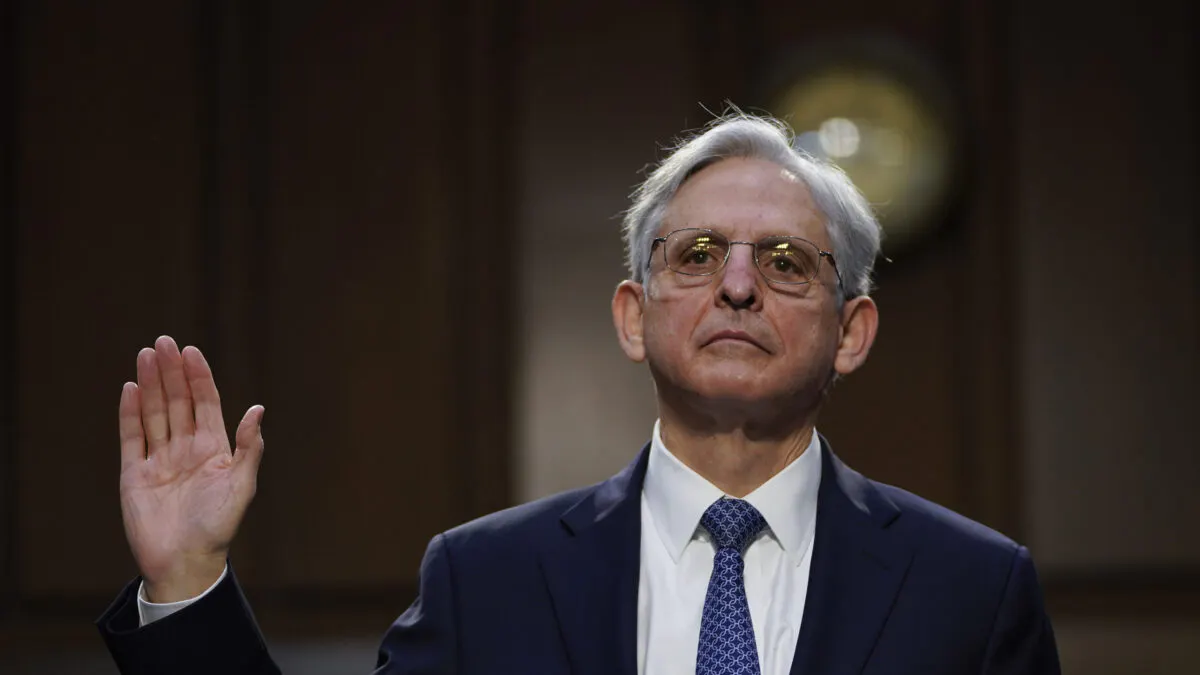The Department of Justice (DOJ) has chosen to rebuff House Republicans seeking audio of special counsel Robert Hur’s interviews with President Joe Biden for a classified documents investigation despite a threat to hold Attorney General Merrick Garland in contempt of Congress for defying their subpoenas.
Assistant Attorney General Carlos Uriarte wrote in a letter sent to House Oversight Chairman James Comer (R-KY) and Judiciary Chairman Jim Jordan (R-OH) on Monday — which was the deadline the congressional leaders set for the materials — that a transcript for the two-day interview that was already provided to them should be sufficient.
“The Department is concerned that the Committees’ particular focus on continuing to demand information that is cumulative of information we already gave you — what the President and Mr. Hur’s team said in the interview — indicates that the Committees’ interests may not be in receiving information in service of legitimate oversight or investigatory functions, but to serve political purposes that should have no role in the treatment of law enforcement files,” Uriarte said.
Comer and Jordan wrote to Garland two weeks ago, saying they received redacted transcripts of Hur’s interview with Biden on March 12, just hours before the special counsel testified before the House. The chairmen again demanded audio recordings of Hur’s interview with Biden, which they had stressed as a priority, and audio recordings of the special counsel’s interview with Biden’s ghostwriter, Mark Zwonitzer, in compliance with subpoenas from February.
If Garland failed to provide the materials by April 8, the committees “will consider taking further action, such as the invocation of contempt of Congress proceedings,” they warned.
The committees have “already received the extraordinary accommodation of the transcripts, which gives you the information you say you need,” Uriarte claimed. “To go further by producing the audio files would compound the likelihood that future prosecutors will be unable to secure this level of cooperation. They might have a harder time obtaining consent to an interview at all. It is clearly not in the public interest to render such cooperation with prosecutors and investigators less likely in the future.”
Uriarte said his letter “supplements” previous responses to the panels and noted a transcript of Hur’s interview with Zwonitzer was enclosed as “further accommodation.” He argued that the information provided “does appear” to resolve the concerns raised by Comer and Jordan related to legislative oversight of the DOJ and the impeachment inquiry against Biden.
In a sign that the clash over materials from Hur’s investigation into Biden’s handling of classified records is not yet over, Comer released a statement that said Oversight and Judiciary Committees will “soon” respond to DOJ while seeking “needed” information.
“The Biden Administration does not get to determine what Congress needs and does not need for its oversight of the executive branch,” Comer said. “The American people deserve to hear the actual audio of President Biden’s answers to Special Counsel Hur.”
Seeming to anticipate an escalation, Uriarte pleaded how it is “not too late for the Committees to choose a different path, to take on offramp towards the ‘spirit of dynamic compromise’ that the Constitution requires of us both.”
Hur’s report, which was released in February, criticized Biden’s retention of classified records while out of office, yet the prosecutor declined to recommend charges. The report described Biden as a “sympathetic, well-meaning, elderly man with a poor memory” whom a jury likely would not convict “of a serious felony that requires a mental state of willfulness.”
CLICK HERE TO GET THE DAILYWIRE+ APP
The special counsel also found that Zwonitzer deleted recordings of conversations he had with Biden upon learning about the documents inquiry, but the ghostwriter provided “plausible, innocent reasons” for his actions and other materials. Ultimately, Hur said he determined the evidence would not suffice for a conviction on obstruction of justice.
Biden and the White House have pushed back against Hur’s characterizations in his report, but Garland insisted that it would have been “absurd” for someone in his position to have edited or censored the special counsel’s explanation.

.png)
.png)

